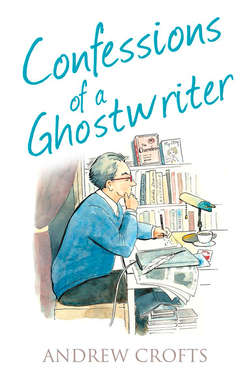Читать книгу Confessions of a Ghostwriter - Andrew Crofts - Страница 13
Glimpses of hell
ОглавлениеLiving, as I do, in one of the safest and most prosperous islands in the world, and being part of a comfortable and loving family, it is easy to forget or to remain ignorant of the depths of hellishness that man is capable of inflicting on his fellow man, and frequently does. The collapse of the communist Eastern Bloc at the end of the eighties released a hurricane of shocking and fascinating human interest stories, carried back to the West by people who needed the help of ghostwriters to tell them.
When Romanian President, Nicolae Ceauşescu, was toppled from power and executed in 1989 his country was released from a quarter of a century of oppression. What horrified the outside world the most, however, was what was discovered inside the walls of the ‘orphanages for the irrecuperable’ which littered the country. Thousands of children who had been deemed to be of no use to Romania, or who had been ‘inconvenient’ births, were found locked up in these asylums, tied up in cots, starved, abused, driven insane and beaten until they eventually gave up living. This was what medieval Bedlams must have looked like. Western cameras went in and recorded scenes the like of which we had not seen in Europe since the liberation of the concentration camps after the Second World War.
After the collapse of Yugoslavia stories of war crimes and ethnic cleansing emerged daily as different factions and nationalities struggled to fill the power vacuum, committing any atrocities they deemed necessary. Soldiers, doctors, diplomats and charity workers all came out of the area with tales of unbelievable barbarity and many of them also needed ghostwriters to help them put into words horrors that had left them speechless.
The symbolic fall of the Berlin Wall seemed like a new beginning. Although the stories that had been hiding behind it were more prosaic than we had been led to believe by the propaganda of the Cold War, at a personal level they were both shocking and awe-inspiring. Individual stories of endless, grinding poverty, cruelty and darkness emerged into the light. Each story that was brought to me seemed more gruelling and shocking than the one before.
Out of that darkness, however, it was possible to make out glimmers of hope as good people made huge sacrifices and put their own lives on hold in order to help. A variety of ghostwritten books followed. There were tales of hopelessly crippled and apparently mad orphans being saved by Western surgeons and by the love of patient foster families. Bombed orphanages were rebuilt by soldiers, charities were set up and families who had been separated for a generation were reunited. There was so much to do but no shortage of people who wanted to help, and who then wanted to tell the stories of the horrors and the miracles they had witnessed.
For a writer it was a Pandora’s box: scenes of unspeakable evil and personal struggles, often leading to happy endings. I wrote the story of a small boy who had been tied up and imprisoned in an orphanage cot for the first four years of his life, condemned by the authorities as sub-human because he was believed to be both physically and mentally handicapped, who was saved by a volunteer and given a full life in the West. I did one for a soldier who rebuilt a bombed orphanage for a local town in his own time and went on to create a full-scale charity, and another for an English woman who had been trapped in Eastern Europe as a teenager just before the Second World War, not escaping back to her family in the West until the Iron Curtain finally fell just over half a century later. I also helped tell tales for some of the pioneering business pirates and ex-politicians who built vast fortunes as communism crumbled and a new frontier-land of opportunities opened up for those bold and ruthless enough to grab them.
These stories were the absolute stuff of life, horrifying and inspiring, sickening and uplifting, frightening and dramatic. I seldom cried while I was actually there in the orphanages, or actually listening to the stories (as Graham Greene once said ‘There is a splinter of ice in the heart of a writer’), but I confess that when I came to write the stories the ice would inevitably melt into tears. The goal then was to ensure that the readers would be equally moved to tears at the same time as being unable to stop turning the pages.
